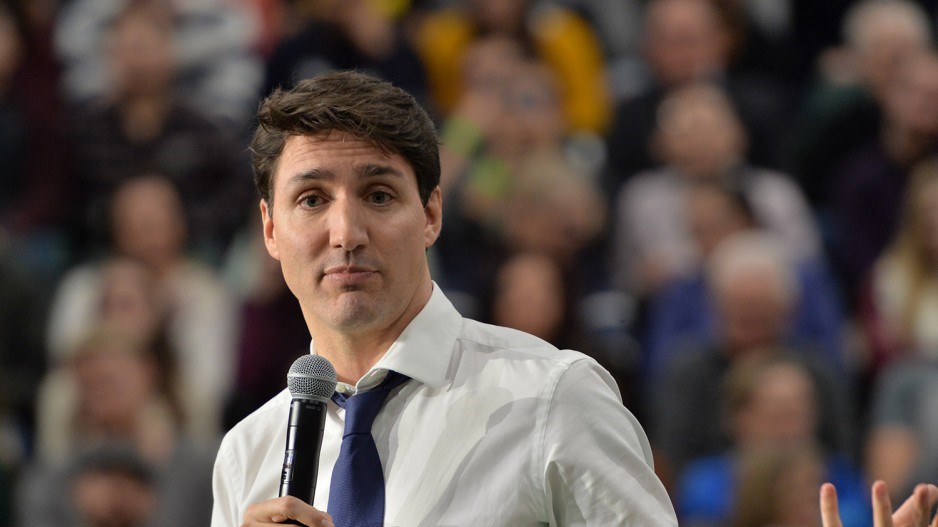A major cabinet shuffle with an unpopular government is often likened to changing the deck chairs on the Titanic.
It’s probably closer to changing the mannequins in the department store window. Their placement tries to sell us the fashionable product line in the store behind them; when it’s not working, they’re changed, but it doesn’t necessarily have much of an effect.
Power is so centralized in Ottawa, away from those front-facing ministers, so any change in their composition is more about changing the cast of characters to role-play on their urgent issues under the direction of the prime minister and, in particular, his office.
Wednesday’s significant shuffle took pains to displace some prominent ministers in the display window: David Lametti in justice, Marco Mendacino in public safety and Mona Fortier in treasury board most prominently. Others were moved into new portfolios to alleviate adverse publicity: Pablo Rodriguez into transport from heritage, for example.
But even if there is little change in the power dynamic of Justin Trudeau’s government, the message it sends is of an administration that knows it is wearing thin on Canadians and needs at the very least an injection of new front-facing representatives.
Of course, few could name more than two cabinet ministers. Mostly we focus on the leader, and when he reorders his team, he is suggesting either that his direction hasn’t been properly delivered or that those taking the direction haven’t properly delivered insights to him.
It’s never him, himself.
In this case, though, it appears to be about him. Public opinion on the government isn’t strong and public criticism of its leader is. An election today would bring a Pierre Poilievre minority, and the same trend line with enough time would make that a majority.
The messaging in Wednesday’s moves is that the government focus is itself shifting to, of all things, the economy and housing. This is a nice canopy on the reality that the government has neither built the foundation for economic growth, nor done anything other than ruin public finances, nor addressed the important connection between the needed record immigration and even-more-needed paltry housing construction to accommodate the new arrivals. Neither task is solvable swiftly, neither is attracting new ideas to pursue, so what it accomplishes in this government’s lifespan – even if it wins the next election – is of questionable Liberal benefit.
The most curious part of this is that it comes mid-way in an election cycle, not near an election itself. Governments tend to tinker at this stage, not tear down, so it shows that the Liberals realize what’s in the window isn’t selling. It’s also curious that some ministers are already saying they won’t run again, a declaration that tends to come in the six months preceding a vote and not two years from it. While their motives are unclear, that might signal not that an election is imminent but that the ministers themselves just want off the ship.
It is also unclear why the unpopular prime minister is doing more than cosmetic changes to his front benches with the ministers he wishes to punish and the ministers who won’t be staying on.
There is no way this would be the last shuffle before the scheduled fall 2025 election, so either he will make even more changes in the election run-up or he has made his last change – and, by promoting new blood into the body, is setting the stage for his successor to refine this group for a campaign.
British Columbia loses a minister in Vancouver’s Joyce Murray in fisheries, but gains one in Burnaby’s Terry Beech in the newly created (and thus a long-term build) citizens’ services portfolio. Jonathan Wilkinson in resources adds the energy portfolio, which is a back-to-the-future move – the two tasks have been paired before.
There appears to be a slight status boost for one –°¿∂ ”∆µ minister in cabinet. Vancouver’s Harjit Sujjan, once an inner-circle defence minister, then demoted into international development, rebounds with a new combination of emergency preparedness and president of the King’s privy council.
Mostly, though, the window-dressing appears to be buying time for the leader to determine if the poll numbers are real, if they are certain to deliver the opponent victory, perhaps a majority government. No cabinet shuffle will change that; only at the very top can there be a change in fortunes. Besides, our prime minister is running out of mannequins to move.
Kirk LaPointe is publisher and executive editor of Business in Vancouver and vice-president, editorial, of Glacier Media.





